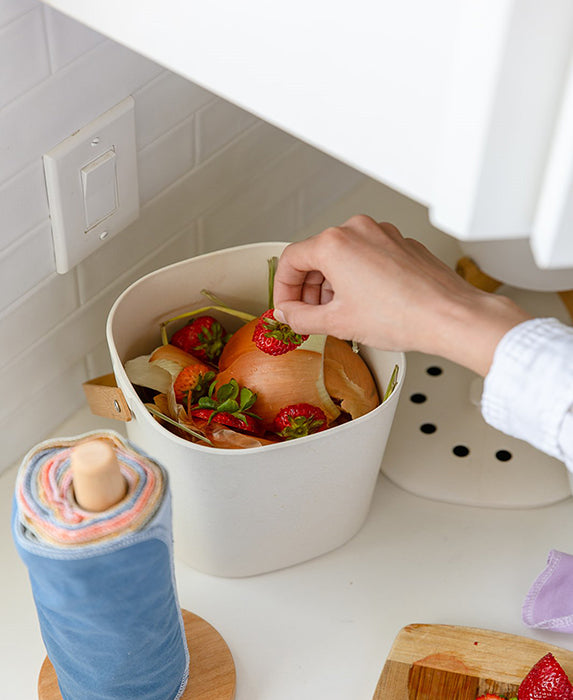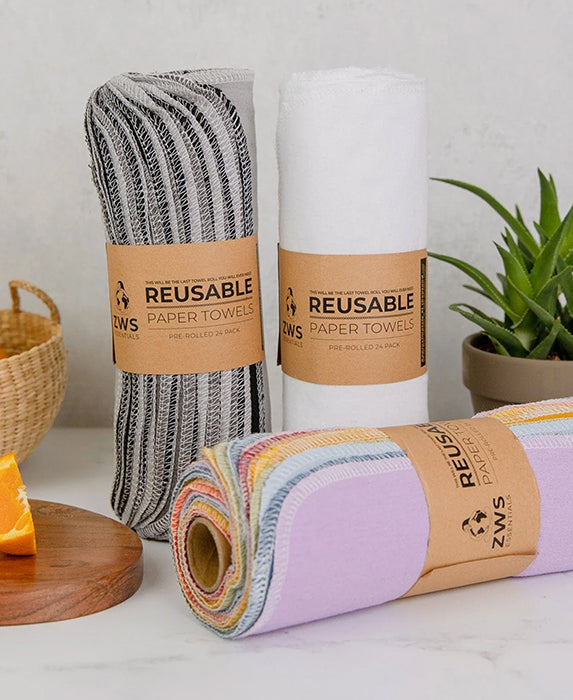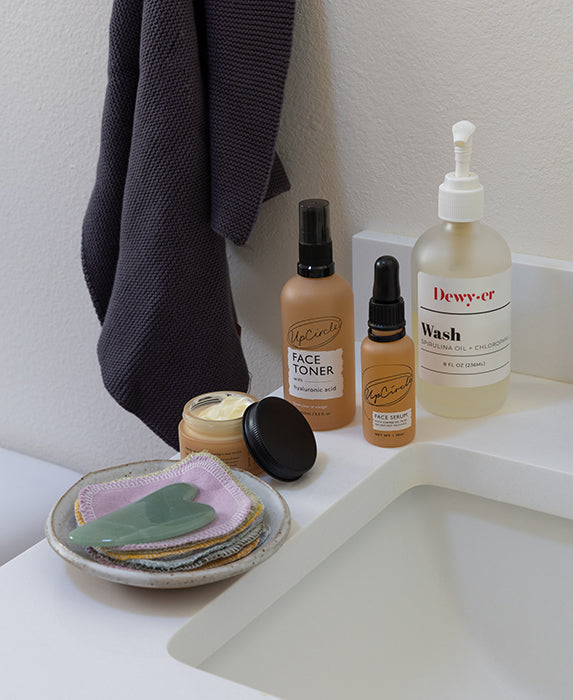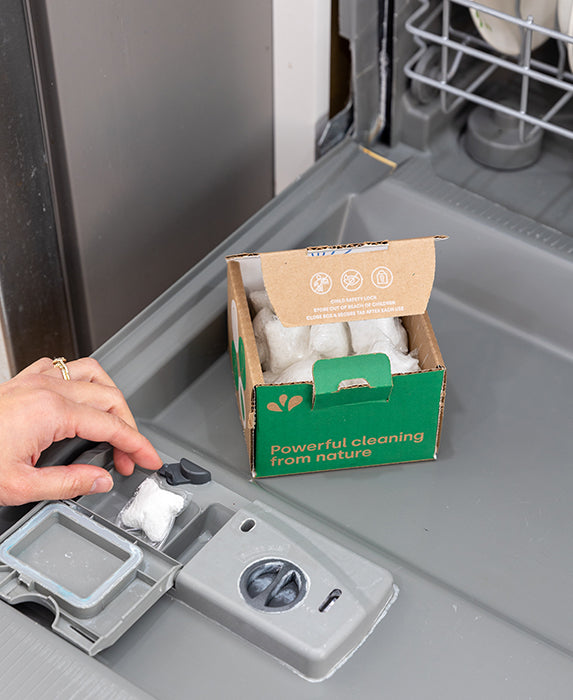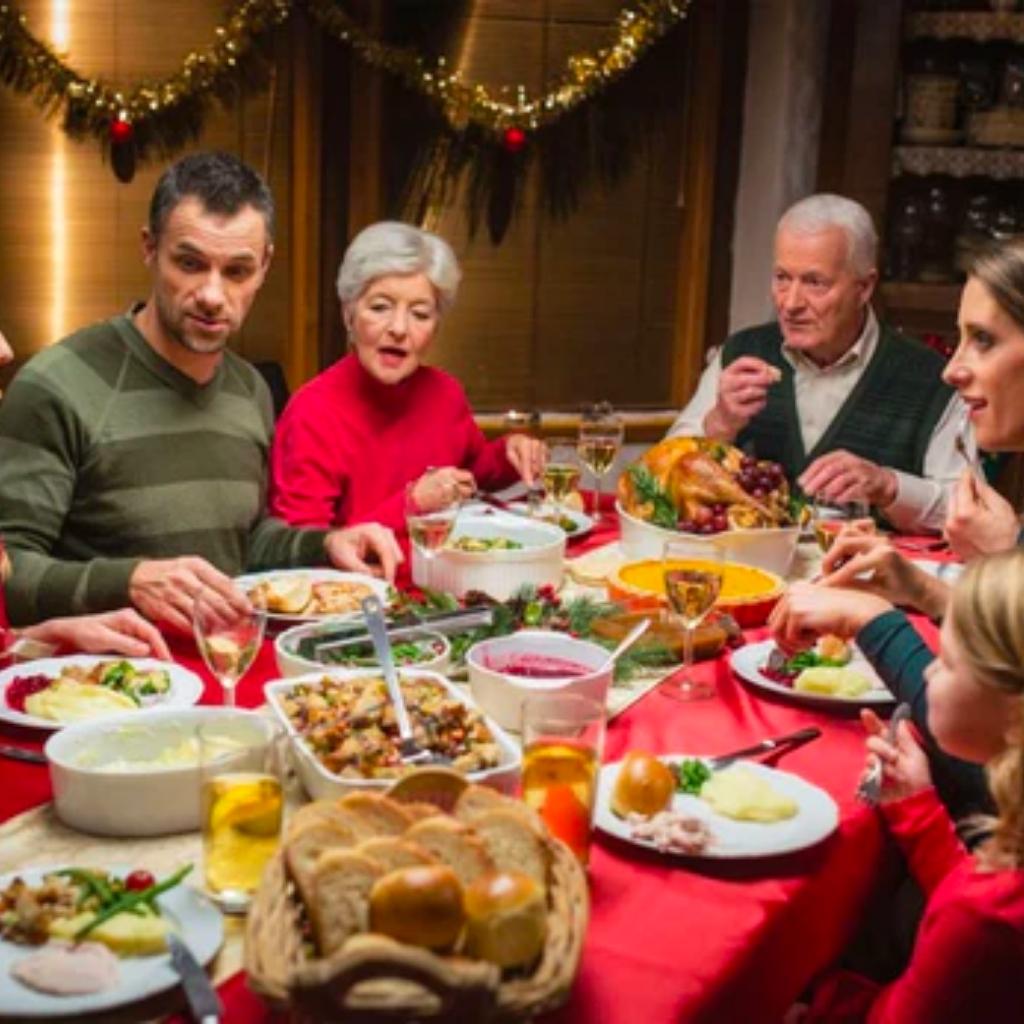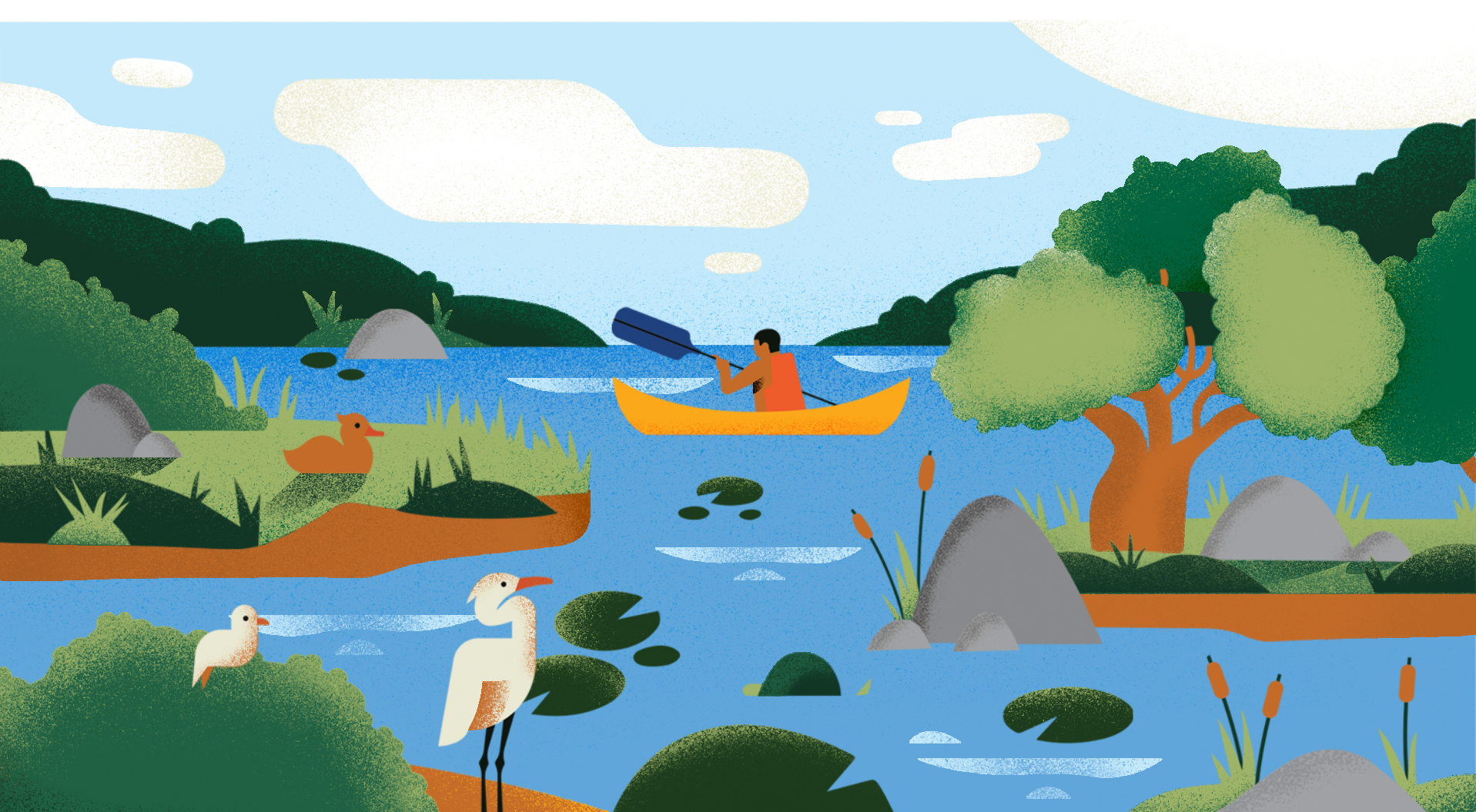The holidays are right around the corner, which probably means you’ll be spending some quality time in close quarters with your family. I don’t know about you, but for me that entails lots of cooking together, decorations around the house, maybe some eggnog, and some tense dinner conversations that may or may not end up in tears and an unresolved argument. More than ever, families are feeling polarized and conflicted, and are especially passionate around hot button topics like climate change, politics, and sustainability. And when it’s your family, they know how to get under your skin and vis versa, so these interactions can be even more straining and emotional.
But you’re determined. You’re trying to do everything you can. You’re going strong on your plant-based diet, you’re composting and recycling, you’re advocating for human and animal rights and signing petitions against injustice, and you’re a conscious consumer whose purchases pave the path towards sustainability. And yet, your partner, your friends, or your parents don’t remember to bring their reusable bags to the grocery store and wrap each individual fruit and vegetable with a plastic produce bag. Or, they’ve turned a blind eye to your plant-based diet and cooked bacon in…everything.
You’ve tried telling and showing them all the different things that convinced you into a more sustainable lifestyle, but it doesn’t quite seem to click. In fact, it usually makes them passively (or actively) upset or angry, turning them away from what you were trying to get them to see in the first place. So you resolve to angrily and quietly pick the food waste out of the garbage at night and put it in the compost bin. You don’t know what else to do, because it seems like no one wants to actually listen or awaken to the human and environmental impact of our everyday habits. And if anyone should understand, it should be family right?
Maybe you’ve tried sharing information: data from research, news stories, blog posts, or documentaries. Sometimes you can trust that it’s enough to just give other people the figures and facts, because injustice can speak for itself. But more often than not, it stimulates feelings of fear, guilt, and shame. On a deeper level, most people have some idea that they’re negatively contributing to the decline of the planet and human health, so shoving more guilt-provoking facts down their throat is only going to make them feel worse. And when people feel bad about themselves and the state of the world, there’s just no motivation to take action.
Similarly, you may have tried “should-ing” your family into action. You’ve already done the research, so you can just let them know how they can make a difference. You ‘should’ recycle this, you ‘should’ watch your carbon footprint, you ‘should’ check out sustainably-made clothes and products. But I’m guessing “should-ing” all over your family hasn’t been too effective. It creates an air of superiority, and it makes people feel like they’re not good enough because they ought to be better. When’s the last time you did something because someone told you that you should? Most people don’t want to be told what to do, especially by family. They’d rather discover for themselves than be told.
When you want to talk to friends and family about sustainability how they can n make change in their daily lives, you’re talking about changing people’s routines–and humans are creatures of habit. Think of how hard it is to start a new healthy habit. Take yoga, for example. You believe that yoga has mind and body benefits, you want to start doing yoga, but it’s hard to get yourself out of bed for that early morning class when staying in bed is just…easier. The last thing you need is for someone to tell you that you should do some downward dogs–it takes a little more than a suggestion.
In the book, How Can I Help?, Ram Dass and Paul Gorman write that social action ought to be fully voluntary if it’s going to have power and endurance. So if we’re setting out to convince someone to change through positive or negative methods, we’re not leaving them room to get there themselves. When they’re not reaching the conclusion on their own, no amount of “should-ing”, guilt, blame, data, facts, or headlines will result in them creating a lasting change.

In fact, exuding any kind of self-righteousness or superiority almost guarantees you won’t create the change you’re hoping for. The exciting thing is that you do have the ability to enact change – with family, friends, and everyone else in your life! It takes four challenging steps: inner work, listening, encountering conflict, and coming from a place of unity.
Inner Work
Before we set off on our quest to tackle tough conversations with family, you must find a way to create a foundation of whole-heartedness and compassion. This takes time, patience, and lots of inner work.
In How Can I Help?, Dass and Gorman poses these questions: “If we are not rooted in compassion, how will our acts contribute to a compassionate world? If we cannot move beyond inner discord, how can we help find a way to social harmony? If we ourselves cannot know be peace, be peaceful, how will our acts disarm hatred and violence?” If you are not able to embody the traits you want to see in the world, how can you ask others to do so?
But it’s not all peace and tranquility with inner work. You must still be open to seeing what is and facing the injustices of the world. You need to take it all in, let yourself feel the hurt and pain of the world, and come together in your wholeness to retain a sense of compassion and quiet determination. This will be tested, intensely, when it comes to these tough and polarizing conversations with your family. Remember where you’re coming from: your fullest and most open heart, not clouded by any forms of self-righteousness.

Listening
Deep listening is the real key to change. We need to be able to recognize the integrity of another’s experience, regardless of our level of interest or education on any subject. So when you talk to friends and family about sustainability, you can ask questions like “What have you been through?”, “Why do you feel that way?”, “What did it look like to you?” and truly value their answers.
Empathetically listening is a key part of nonviolent communication. When you’re truly listening with your heart, unclouded by trying to change who they are and what they’re saying, you can really distill down the layers of your conversation to basic feelings and needs. Understand what’s truly important to them through these basic feelings and needs, and see if you can find a way to communicate with that point of view in mind. Share, don’t convince, because action will follow when people felt heard.
I do not want to give the impression that nonviolence will work miracles overnight. “People are not easily moved from their mental ruts or purged of their prejudice and irrational feelings… the nonviolent approach does not immediately change the heart of the oppressor. It first does something to the hearts and souls of those committed to it. It gives them a new self-respect; it calls up resources of strength and courage that they did not know they had. Finally, it reaches the opponent and so stirs his conscience that reconciliation becomes a reality.” – Martin Luther King Jr.
Encountering Conflict
When you’re talking to your family about hot topics like sustainability, you may encounter some conflict, pushback, or passive aggressiveness. When you’ve done the inner work, freed yourself of self-righteousness, and become grounded in a kind of inner clarity and quiet self-assurance, you’re going to be less likely to rush in to prove a point. This kind of reaction can contribute to a chain of reactiveness where the issue gets lost and the polarization makes it harder to start over again.
You’re going to have to be patient with your parents and siblings and partners as they run the gamut of their reactions. Negative reactions are to be expected; you’re putting them on the spot and asking them to look at themselves and their habits. Remember, you’re not trying to force a change of heart, because change doesn’t usually happen from external pressure. You’re just letting them hear the message that’s grounded in respect and trust and letting the message work on its own. Your family’s reactiveness needn’t be an issue, in fact, it can be an opportunity to demonstrate that you are ready to listen. You can really hear what’s behind their struggle and what’s important to them. From there, you can communicate effectively.
It may take one conversation for the message to sink in, or it may take years of conversations. But as long as you can stay grounded through inner work and listening, encountering conflict will always be an opportunity to move forward.
Coming from Unity

Sustainability is about the wellbeing of all, creating a vision of a future in which we all thrive. When you’re talking with family, it may be easy to get lost in the “I’m right, you’re wrong” mentality. But it’s important you remember that we must awaken together because we’re fighting for all of us. It can’t just be you against them or vis versa, it has to be Us.
So, let go of your attachments to making someone change immediately, because there is no certainty of how these types of conversations will go. Through your dedication to inner work, deep listening, and allowing conflict to be an opportunity, the transformation of others can unfold. Continue being the change you want to see in the world – your essence will be contagious.
This guest blog was written by Meredith Doherty, an EarthHero team member and student pursuing a Masters of Arts in Ecopsychology at Naropa University in Boulder, Colorado. She is deeply passionate about changing consumerism towards a more sustainable system, and is committed to learning about sustainable and eco-friendly business practices through a contemplative understanding of the human connection and responsibility to the natural world. Thanks for sharing your insight, Meredith!

